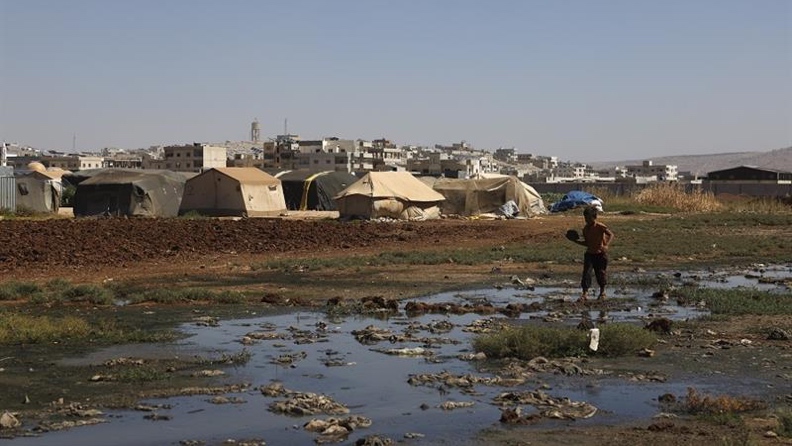Turkish-triggered water crisis worsens cholera epidemic in Syria: Human Rights Watch
Turkish-triggered water crisis worsens cholera epidemic in Syria: Human Rights Watch
- Date: November 9, 2022
- Categories:Rights

- Date: November 9, 2022
- Categories:Rights
Turkish-triggered water crisis worsens cholera epidemic in Syria: Human Rights Watch
Human Rights Watch (HRW) said on Monday that Turkey’s disruptions to the water supply in North and East Syria had triggered a cholera epidemic in the region.
The US-based non-governmental organisation Human Rights Watch (HRW) has accused Turkey of aggravating a cholera epidemic in Kurdish regions of northern Syria by cutting off the flow of the Euphrates river.
Adam Coogle, deputy Middle East director at Human Rights Watch warned that the lack of water could lead to additional outbreaks of different diseases and called on Turkey to “immediately stop aggravating Syria’s water crisis.”
“Syrians stood up to a brutal government back in 2011 to fight for their civil and political rights,” Coogle said. “Now, more than a decade later, they are struggling to meet their most basic needs.”
HRW also noted that the Syrian Government’s discriminatory diversion of aid and essential services was inhibiting “an adequate humanitarian and emergency response in affected parts of the country” and called on all parties to the conflict to grant aid workers direct and unimpeded access to all areas of Syria.
HRW emphasised that Turkey should fairly share the water resources of the Euphrates river, which originates in Turkey and crosses Syria on its way to the Shatt Al-Arab Basin in Southern Iraq,.
The cholera epidemic, which as of 1 November had reached 24,000 suspected cases and 81 deaths recorded according to the World Health Organization (WHO), spread to Lebanon after affecting parts of Syria and Iraq.
Amid the COVID-19 pandemic in March 2020, HRW documented that Turkey had not provided adequate water supplies from Allouk station to Kurdish-held areas in Northeast Syria. At the time, 49 Syrian groups condemned Turkey’s “intentional interruption of water in Northeastern Syria.”
In July, the Autonomous Administration of North and East Syria (AANES) reported that Turkish forces had targeted infrastructure, including water and power stations, in a state of emergency declaration regarding Turkey’s military operations in Syrian territory.
According to the International Committee of the Red Cross, 50 percent of water and sanitation systems are not operating properly due to the destruction of water facilities across the country during the ongoing conflict.
The unsafe drinking and irrigation water sources carry high risks, particularly to children, due to dangerous water-borne diseases such as cholera, which the U.N. defines as an indicator of inequity.








Leave A Comment